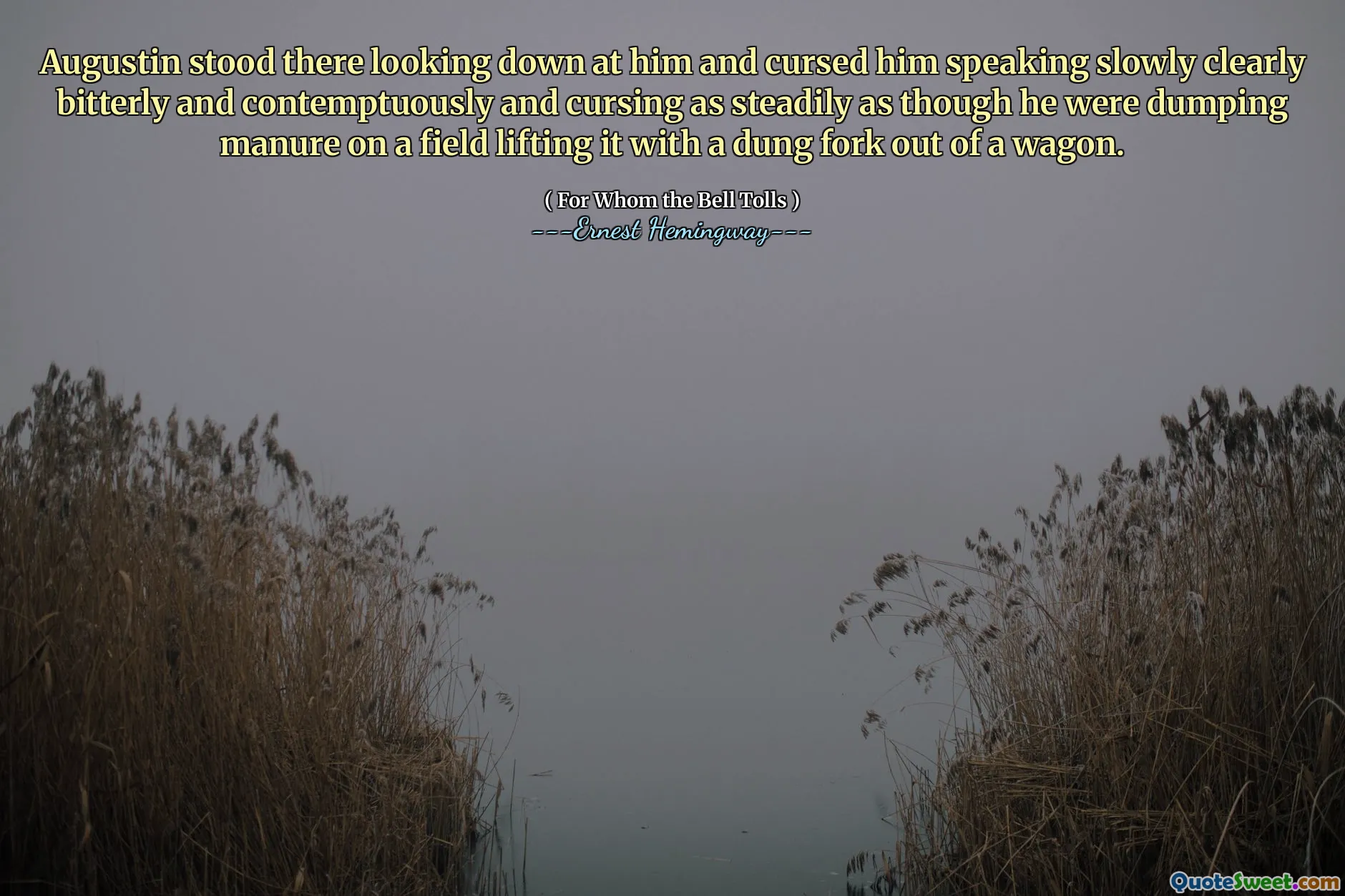
Augustin stood there looking down at him and cursed him speaking slowly clearly bitterly and contemptuously and cursing as steadily as though he were dumping manure on a field lifting it with a dung fork out of a wagon.
In this evocative passage from Ernest Hemingway's For Whom the Bell Tolls, we witness a striking portrayal of human emotion rooted deeply in bitterness and contempt. The image of Augustin cursing "as steadily as though he were dumping manure on a field" conveys a raw, harsh intensity to his anger and disdain. Compared to the physical and relentless effort of unloading manure—an act associated with hard labor and unpleasantness—Augustin's cursing is methodical, weighty, and unrelenting. It evokes the idea that his spite and bitterness are heavy burdens being deliberately offloaded and expressed to the fullest, with no intention to hold back.
The slow and clear manner in which he curses underscores the deliberate nature of his anger, as if every word is carefully chosen to wound or express deep-seated resentment. The bitterness and contempt suggested here emphasize a personal or moral judgment, a dynamic often present in Hemingway's exploration of human relationships in moments of tension and conflict. The vivid metaphor of dung—something seen as undesirable but vital for growth in nature—might be interpreted symbolically. Augustin's words, though harsh and offensive on the surface, might also be seen as cathartic or as having some function within the interpersonal situation; they clear the ground much like manure fertilizes the soil.
Furthermore, the passage highlights Hemingway's trademark economical but powerful prose style. The sentence flows in a way that simulates the gradual and persistent action of dumping manure, immersing the reader in the emotional intensity of the moment rather than diverting attention into complex narrative or description. The gritty realism and rural imagery anchor the emotional landscape of the characters, reflecting internal psychological states in physical terms.
Overall, this quote offers a window into the raw human condition—where anger, bitterness, and contempt are not just fleeting emotions but something tangible, measured, and enduring. It also invites reflection on how people externalize internal turmoil and how that expression materializes in everyday, even mundane, actions and metaphors. This passage powerfully embodies the intersection between language, emotion, and physicality characteristic of Hemingway’s literary voice.





